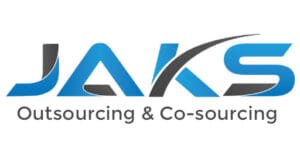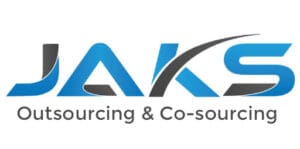
In today’s competitive business environment, strategic partnerships can unlock new markets, bring in valuable expertise, and fuel long-term growth. But before a potential partner joins forces with your company, they’ll ask one critical question: What is your business worth?
That’s where a solid, well-documented business valuation comes in. It’s not just a financial report—it’s a tool that builds trust, sets expectations, and opens the door to meaningful collaboration. At JAKS, we work closely with CA and CPA firms to provide reliable business valuation services, helping you deliver clear, accurate, and actionable advice to your clients with confidence.
Why Strategic Partners Care About Valuation?

When another business considers working with you, they need to understand what they’re getting into. Whether the partnership involves investment, shared services, distribution, or co-branding, both parties want to know the value of the business, not just in terms of revenue, but also in terms of assets, growth potential, and stability.
Here’s why valuation matters to a potential partner:
- It shows you understand your own business inside and out
- It reduces the risk of surprises or disagreements later
- It creates a fair starting point for negotiation
- It gives insight into your company’s financial health and future potential
Step 1: Understand the Basics of Business Valuation
Before you can use valuation as a partnership tool, you need to understand how it works. A business valuation is an objective analysis of what your company is worth today. It typically uses one or more of the following methods:
- Asset-Based Approach: Focuses on the value of the company’s assets minus liabilities.
- Income Approach: Looks at the company’s current and future earnings, using methods like Future Maintainable Earnings (FME) and Discounted Cash Flow (DCF).
- Market Approach: Compares your business with similar companies that have been sold or valued, providing insights into potential valuation.
Each method tells part of the story. The right approach depends on your industry, company size, and stage of growth.
Step 2: Get a Professional Valuation
While it’s tempting to create your estimate, professional valuation carries more weight. An independent expert will ensure accuracy, credibility, and neutrality—qualities your potential partner will value highly. A professionally prepared valuation report includes:
- A summary of financial performance
- Asset and liability breakdowns
- Industry comparisons
- Growth forecasts and risks
- Clear explanations of how the value was calculated
This kind of transparency gives partners confidence and shows that you’ve done your homework.
Step 3: Use Valuation to Show Strategic Value
Business valuation isn’t just about numbers—it’s about the story those numbers tell. When approaching a potential partner, use your valuation report to highlight:
- Revenue trends and how they support your growth plan
- Customer base strength and market position
- Profit margins and how they compare to industry standards
- Opportunities for synergy—where working together could create new value
For example, if your valuation shows strong brand loyalty and customer retention, a distribution partner may see a clear path to expanding their reach through your business.
Step 4: Be Open to Discussion and Negotiation
Your valuation isn’t set in stone. It’s a starting point. In many strategic partnerships, your partner may want to contribute resources, such as technology, capital, networks, or infrastructure, to enhance the value of the partnership. In return, they’ll expect something that reflects your business’s current and future value.
Here’s where a clear valuation helps:
- It creates a baseline for ownership discussions if equity is involved.
- It helps define roles and responsibilities based on contribution and value.
- It allows flexibility—if the valuation feels high or low, you can explain why.
Being transparent and open to dialogue builds trust and keeps the focus on mutual benefit.
Step 5: Keep Your Valuation Updated
A strategic partnership may not happen overnight. Discussions can take weeks or months. If your business changes during that time—such as acquiring new clients, launching a new product, or entering a new market—your valuation may also shift.
Regularly updating your valuation helps you:
- Stay negotiation-ready
- Reflect real-time business performance
- Adjust expectations if needed
This also shows partners that you’re actively managing your business and keeping your financials in check.
At JAKS Australia, we help CA and CPA firms as well as business advisors by providing expert support with business valuations and transactions. Our goal is to make your work easier by giving you clear, accurate, and on-time valuation reports for mergers, acquisitions, or other business decisions. We understand Australian rules and market trends well, and we work as part of your team to help you give smart, reliable advice to your clients.
JAKS helps to make complex valuation work simpler for your firm, so you can focus on delivering high-value advice to your clients. Get in touch with us at +61 402 554 052 or email [email protected] to find out how JAKS can support your team.




